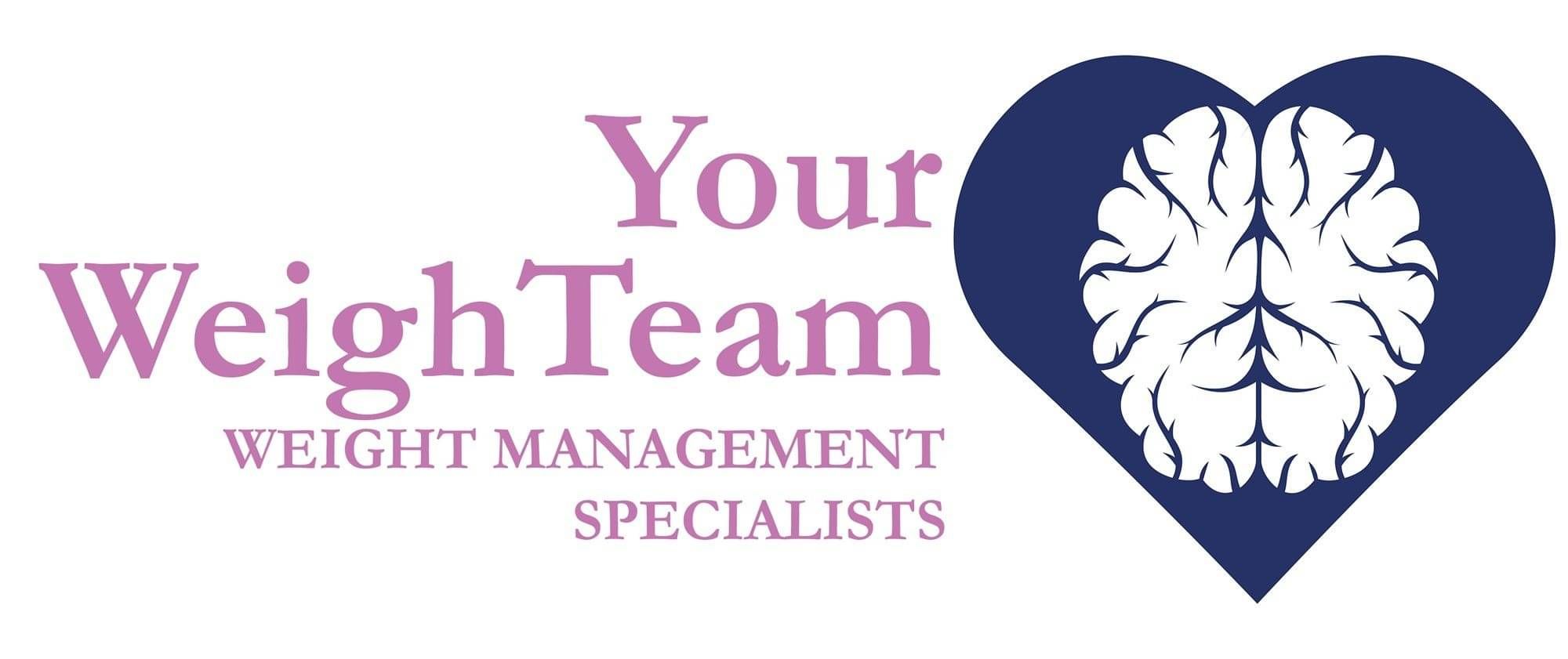If you've struggled with your weight for a long time, a team approach will help you get the best out of weight loss options.
By Kate Berridge, Your Weigh Team (formerly Tiaki Whaiaro)
RNcP MN (Hons)
Wegovy (Ozempic) sounds like a magic wand for weight loss.
GLP-1 agonist medications like it are useful tools, but they can’t ‘fix’ you.
Research shows that, on average, a person who adheres to Wegovy and its protocols around eating and exercise will lose around 15% of their body weight in 68 weeks (15.5 months).
What does that look like in the real world?
if that average person weighs 100kg, they can expect that after 68 weeks, they’ll have lost around 15kg;
in that time, they’ll spend around $500 a month (depending on chemist pricing) - that's $7000-$7500 (if they use the full dose each month);
if they then stop taking the medication, their weight will begin to go up again.
It’s a lot of money.
Some people find that there are savings in food costs that help to offset the cost of the medication. For example, if you’re eating 75% of what you normally eat, the savings on that can be put towards paying for the medication.
So you might be wondering why on earth you would spend more on a care plan like the one we’re offering with Your Weigh Team?
Good question.
It’s because we know people who have long-term weight management issues are the most likely to struggle, even with help from medication (or surgery).
I’ve worked with thousands of weight loss surgery patients, and now people using these types of medications. I’m also privileged to know teams from around the world who do the same work.
Most of our patients share one thing in common. They have gained, lost and regained weight for as long as they can remember. Overall, their weight has gone up. Their mental health has suffered.
A GLP1-agonist medication like Wegovy is a tool that will reduce ‘food noise’ and increase the feeling of fullness after eating, but that's all it can do.
If you've spent a long time in a bigger body, your mind, more specifically, your emotional state, can override those effects. The result is that people give up on paying for something that isn't doing what they expected.
They also tend to think it’s not working or – more likely – that there’s something wrong with them.
You’re not broken
You’re facing a complex, multifaceted problem, and you need more than one tool, in the same way a builder needs more than a hammer to build a house.
We know from similar work around the world that those who do best using these medications have the support of an evidence-based, judgement-free team who knows about and can prepare you for the challenges you’ll face and offer compassionate care tailored to your needs.
That's why our care plan offers:
education on using the drug, and help with managing side effects, especially in the first 1-4 weeks (please note, side effects can last longer for some people)
skills training around hunger, appetite, and the feeling of ‘fullness’
ongoing mental and emotional support to help you develop strategies for when food and eating behaviours (urges) are overwhelming
help (if required) with a diet plan - protein is key
help (if required) with muscle development, as some of the weight you lose will be muscle, not fat
We want you to get the best long-term weight loss out of what is a really big investment of time and money.
What is happening to you may not be what you feel is happening to you
It’s crucial to understand what the drug is doing to your body.
For example, nausea is by far the most common side effect with Wegovy and other medications such as Saxenda.
People don’t eat because they feel low-key nauseous, especially in the first few weeks to months. They lose weight, and they think that is the drug ‘working’.
But that’s not it.
What GLP-1 agonists do is ‘quiet down’ or sometimes even ‘silence’ the food noise in your head, those relentless messages to eat, which are fuelled by physiological processes in your brain.
That ‘quiet’ means you don’t feel an urge to eat as much. You just don’t think about food or feel much interest in it.
When you do eat, you’ll feel fuller, faster, so you won’t eat as much. Overall, you'll lose weight because you're eating fewer calories.
Why it stops ‘working’
Your mind and emotional state can override these physiological effects.
If you use food to soothe yourself or to generally regulate your mood, when a stressor hits, at some point, you will feel overwhelming urges to eat that are driven by your emotions, not your physiology.
We find this tends to come to prominence around the 12 week mark, but it varies from person to person. There's a similar pattern for weight loss surgery patients that hits around 8-12 months after their operation.
At this point, it's common for people to stop using the drug, thinking it doesn’t work for them, or it's not worth it for the small losses they're seeing.
Our work can help you to develop strategies around emotional regulation.
These will be unique to you and your needs, helping you to manage cravings, so you can continue to benefit from the medication.
Why me? Why can’t I just control myself?
The reasons why you’re in a bigger body and feel strong cravings are complex. It’s rare that there’s just one cause behind weight gain or eating/food behaviour.
Below is just a little of what can contribute to someone facing a long-term weight management challenge.
You'll face this no matter what tool you use, including weight loss medication, surgery, or restricted food intake.
Your body has a lot of control over you
Science can now prove there’s a disease process that affects you at a physiological (not consciously controlled) level.
They call it the chronic condition of obesity. Technically, it’s a disease of the brain. Scientists can't fully explain the process with absolute accuracy right now, but we do know that at some point, a person's brain 'tips' into the disease process.
When it happens varies. For some, it might be when they are 5kg overweight; for others, it might be at 25kg or 60kg overweight. It might be when someone’s weight cycles up, then down and then back up just one time. It might be when it has done this 20 times over 30 years.
Whatever the reason or timing, the body's energy intake and expenditure are affected, and it's not possible to undo it.
The body has a set point (typically a person’s highest weight). Once the disease process is triggered, the body will fight to save every calorie to ensure it returns to that set point, or goes beyond it, so it believes it has the energy stores it needs.
This finding, that the condition of obesity is a disease process in the brain, is a 100% swing away from what science used to think about why people struggle with weight gain in the long term.
It's definitely not what most of Western society still believes, which is that an individual is flawed.
Our reptile minds like simple stories. If you eat less and move more, you’ll lose weight. If you can’t do it, it’s because you’re weak, stupid, lacking in willpower, lazy, and other awful judgements.
It's not true.
Here are some facts instead.
Genetics
There’s a strong genetic component that makes it more likely you'll gain weight. It's by far the strongest of all genetic traits apart from height.
Your genes are then affected by your environment. For example, if you have a genetic predisposition to weight gain, and you’re highly stressed because you work full-time, and you're raising children, and perhaps caring for other family members, and you use food to soothe your stress, you’re likely to be in a bigger body.
That excess weight may then cause health issues, such as high blood pressure, diabetes, fatty liver or other conditions, which in turn raises your stress levels and your need to soothe yourself. It's all a vicious mix to face alone.
Hormones
Your adult weight can be impacted by events that happened to you before you were born. Stress in a pregnant person can cause the developing baby to be born with a naturally higher level of a hunger hormone called ghrelin.
High grehlin levels mean the hunger messages in your brain will be more intense, more frequent, and longer-lasting than in a person who wasn't affected during gestation.
You can’t stop or control this process by using 'willpower' or yelling at yourself inside your head.
Many people are affected by PCOS (polycystic ovary syndrome) and other hormonal and/or immune-based conditions that make weight management much more difficult.
What happened to you when you were younger
People who faced adverse childhood events (ACEs) are far more likely to struggle with their long-term weight management.
ACEs can be on a spectrum from a chaotic living situation (eg, moving around a lot as a child, tight finances) to emotional neglect to severe abuse.
One of the newest pieces of research from decades of study has revealed that if you were bullied as a child or in your teen years and didn’t receive the emotional support you needed, your likelihood of being in a bigger body by the time you’re 18 is almost 100%.
These are just a few of the long, long lists of factors that can lead people to need help managing their weight, even with tools like medication and/or surgery.
As you can see, it gets quite complex, quite fast. And none of it is your fault.
Our experienced team have seen a huge range of challenges that affect people and developed strategies and techniques that will help you.
We’re not promising a 'fix'. We will listen to your needs and provide you with judgement-free, compassionate support that will help you find the solutions that work for you.
Copyright: Kate Berridge, Your Weigh Team 2025



